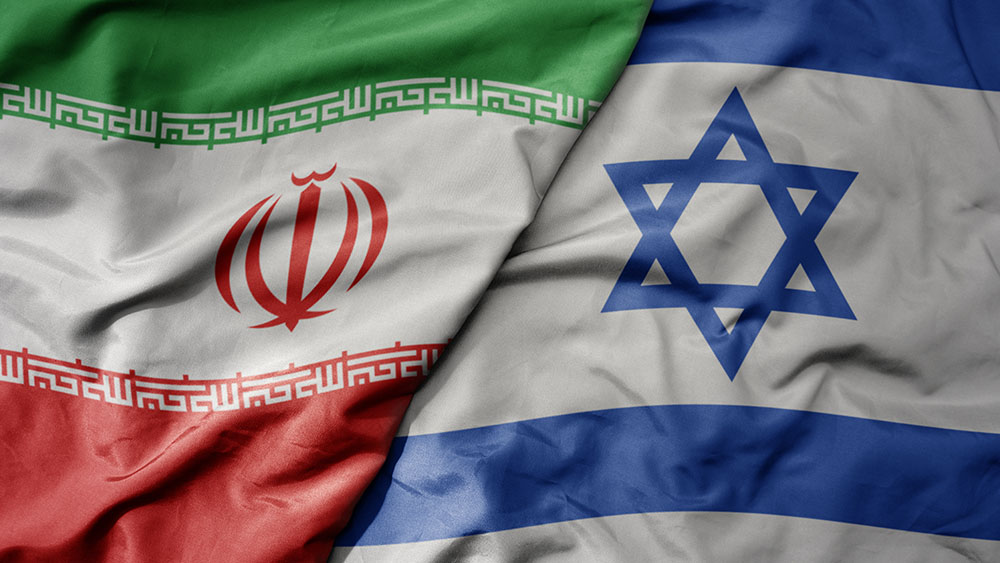
Tehran launched waves of ballistic missiles across the Jewish-majority country on Oct. 1. It was ostensibly done as revenge for the killing of Hezbollah leader Hassan Nasrallah and Abbas Nilforoushan, senior commander of the Iranian Revolutionary Guard Corps (IRGC), during a Sept. 27 bombing by the Israel Defense Forces (IDF) in Lebanon. The attack also sought to avenge the killing of Hamas leader Ismail Haniyeh in July.
Footage that circulated on social media showed many of the missiles hitting their targets, landing inside Israeli soil and exploding without being intercepted by Israel's Iron Dome air defense system. One missile hit the vicinity of a school in the town of Gedera, with photos of the aftermath showing a massive crater in the ground and major structural damage to the nearby buildings. The missile strike caused two injuries inside Israel, while one Palestinian was killed by shrapnel in the city of Jericho in the occupied West Bank. (Related: Iran blasts Israel with 180 ballistic missiles; Israel preparing to STRIKE BACK.)
But as soon as accounts of the post-attack damage made their rounds on social media, Tel Aviv closed off several military zones and prohibited the publication of reporting on where missiles hit the ground. According to MEE, "the censorship from Israel made it difficult to assess the full damage from Iran's strikes, with both the U.S. and Israel sending mixed messages regarding the size and impact of Tehran's attack."
The Wall Street Journal (WSJ) reported on Oct. 2 that the attack caused minor damage to military bases, as per an initial assessment by Israel. The strike reportedly hit the Nevatim Airbase in the Negev Desert, where Israel has placed some F-35 fighter jets.
However, the IDF declined to share with the WSJ the actual extent of the damage to the air base. According to the Israeli military, "it didn't want to give information to Iran" that could help the Islamic Republic understand how much damage its attack caused.
Iran claims 90% of its missiles hit Israel
"Israel's censorship of Iran's attack is not new, and the Israeli government has ramped up its censorship during its ongoing war on Gaza, which began in October 2023 after the Hamas-led attacks on southern Israel," MEE continued.
It also cited a report by +972 Magazine, which found that the IDF barred 613 articles from being published by Israeli media outlets last year – a record number for the magazine. An additional 2,703 articles had also been redacted last year, the highest number of redactions since 2014. The left-leaning magazine began tracking Israeli military censorship in 2011.
Despite the censorship efforts by Israel, Iran stressed that its missile strike was successful. The IRGC said in a statement broadcast on state TV that 90 percent of the missiles it launched on Oct. 1 successfully hit their targets.
Meanwhile, Israel said the IDF and a coalition of allies – including the U.S. and the United Kingdom – intercepted most of the missiles. Several missiles were also located near the Dead Sea, near where Israeli nuclear facilities are located. But the WSJ report said it wasn't clear whether they were intercepted by the U.S. or Israel.
U.S. National Security Advisor Jake Sullivan told reporters on Oct. 1 that while "ineffective," the attack was a significant escalation by Tehran.
"In short, based on what we know at this point, this attack appears to have been defeated and ineffective," he said. "The word 'fog of war' was invented for a situation like this. This is a fluid situation."
Head over to Fallout.news for more stories about the impending war between Iran and Israel.
Watch this clip about Iran's Oct. 1 missile attack on Israel.
This video is from the Prisoner channel on Brighteon.com.
More related stories:
CNN admits ALL of its Gaza-related coverage is examined (and controlled) by Israeli military censor.
CENSORSHIP: Israeli government orders SHUTDOWN of Al Jazeera news and broadcast offices.
CNN spokesperson admits outlet submits stories to IDF for Israeli censorship and control.
Op-ed: Israel censoring and killing JOURNALISTS who exposed atrocities in Gaza.
Israeli Military Censor lists 8 topics journalists are banned from covering.
Sources include:
MiddleEastEye.net
Brighteon.com
Source link

